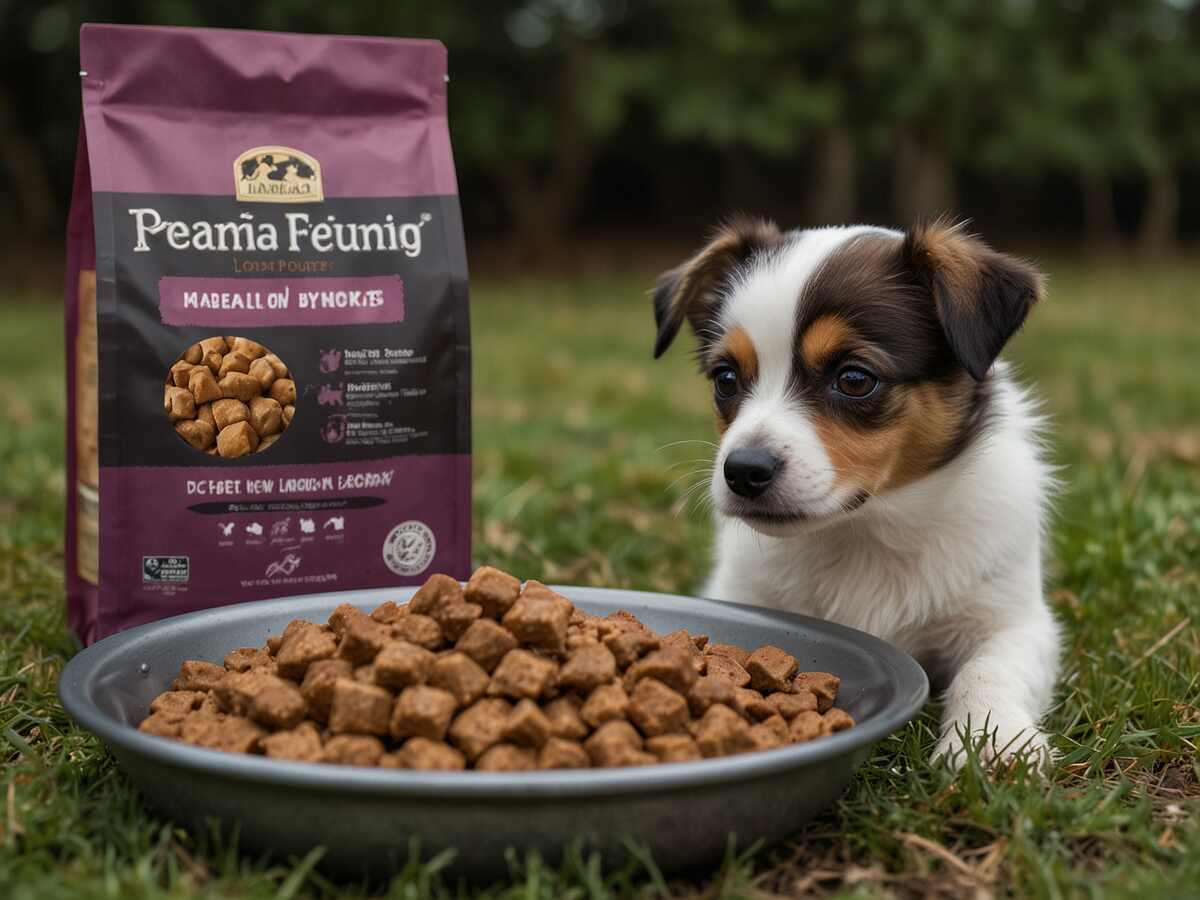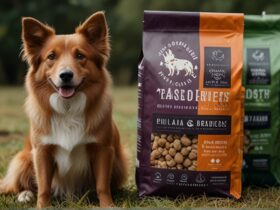dog food for sensitive stomachs. For dogs with sensitive stomachs. Finding The right food can be tricky. Explore our selection of dog food specially designed for sensitive digestion.
Understanding Canine Sensitive Stomach
In our companions. Dogs. A common health concern is sensitive stomachs. Digestive issues can cause discomfort in these animals. In severe cases. Their quality of life gets compromised. Vets often recommend specialty food specifically formulated for dogs with sensitive stomachs. Symptoms might include frequent vomiting. Diarrhea, & gas. Other indicators could be loss of appetite. Lethargy or abdominal pain. Detecting these signs early can allow for earlier intervention. Possibly avoiding severe complications. My personal experience with my Golden Retriever. Max. This stands testament To addressing this condition timely. Max began experiencing frequent loose stools & loss of appetite. Promptly consulting a veterinarian led To a diagnosis of a sensitive stomach. Adjusting his diet with specialized food made a huge difference. Max’s condition improved in a matter of weeks. Providing relief for both of us.
Causes of Sensitivity in Dogs’ Stomachs
Culprits for a sensitive stomach can vary dramatically. Sometimes. The cause could be as simple as an intolerance towards a specific food type. Other times. More serious conditions may create The problem. Pancreatic disorders. Inflammatory Bowel Disease (IBD), & gastritis count among such ailments. These require professional veterinary intervention for diagnosis & treatment. Ingesting foreign bodies. Like toys. Can also result in a sensitive stomach. Dogs. Adventurous by nature. Taste & swallow objects that they should not. Leading To operative emergencies. Keeping a keen eye on your pet’s antics can prevent such unfortunate incidents.
Finding Appropriate Dog Food
Identifying suitable food for your dog requires effort. A delicate mix of quality protein. Fiber, & digestible carbohydrates often provides The best results. Trustworthy reviews can guide you in this process. Many food manufacturers formulate recipes specifically for sensitive stomachs. Vets also frequently offer excellent suggestions based on a dog’s weight. Age, & severity of The condition. Formulas with fewer ingredients often work best. Reducing The chance of aggravating digestive issues. Maintaining consistency in your dog’s diet can contribute substantially To minimizing stomach sensitivity.
Homemade Food for Dogs
Sometimes. Home prepared meals can serve as a viable option. Many pet owners vouch for their effectiveness. Consulting a vet & ensuring balanced nutrition is essential in such scenarios.
Chicken. Rice, & vegetables make a great meal. Does caution require. Though. To remove all bones from The chicken. Cook The vegetables thoroughly & use brown rice for fiber.
Gradual transition from processed food To homemade meals proves beneficial. Sharp changes in diet can exacerbate stomach sensitivity.

Importance of Hydration
Hydration holds supreme importance for a pet’s health. Especially in dogs with sensitive stomachs. It aids in digestion & prevents constipation. Always ensure a clean bowl filled with fresh water. Encourage regular water intake by placing several bowls around The house. Hydrated dogs exhibit unique. Glossy fur. A sure sign of good health. If necessary. Add wet canned food To their diet. Such varieties retain more moisture than dry kibbles. Providing additional hydration.
Feeding Guidelines
Feeding guidelines play a crucial role in managing a dog’s sensitive stomach. Regular small meals stand preferable over one or two big ones. This method lessens The burden on The digestive system. Avoid exercises immediately after meals. Dogs need downtime for food digestion. Consider walks & playtime an hour or two post meals. This routine gives enough time for digestion & reduces chances of gastric torsion. A life threatening condition. Consider slow feeders if your dog rushes through meals. Pets consuming food too quickly often gulps air as well. Causing unwanted bloating & discomfort.
Medical Intervention
Persistent sensitivity in The stomach may necessitate medical intervention. Veterinary consultation can offer apt diagnoses & effective treatment techniques. In some cases. Medication comes into play. Vets prescribe drugs To help your pet cope with The discomfort. With The right treatment & diet. They can lead a normal & happy life. Remember. Frequent vet checkups maintain overall health. Regular visits can detect potential issues early. Enabling timely treatments.
Listing Dog Food for Sensitive Stomach
Features of Good Dog Food
- 🐾 Premium Quality Protein Source
- 🐾 High Digestible Carbohydrates
- 🐾 Thoughtful Fiber Content
- 🐾 Restricted. Clear Ingredients
- 🐾 Natural Prebiotics
- 🐾 Limited Ingredient Diet
Transitioning To New Dog Food
Introductory transitions require time. Begin by mixing small amounts of new food into their regular diet.
Gradual increments in The new food allow for adaptations. Sudden changes can result in digestive problems. Adjust The ratio over a week or two until you’re feeding only The new food.
Monitor your dog during this transition period. Unsettling reactions might occur. In such cases. Consult a veterinarian for guidance.

Understanding Sensitive Stomachs in Dogs
Various dogs manifest digestive issues resulting in a sensitive stomach. These problems may entail diarrhea. Indigestion. Vomiting. Or bloating. Identifying & managing these conditions requires a comprehensive understanding of their causal factors. Typically. Food allergies. Fast eating. Anxiety. Or worms might prompt such issues.
Further. Veterinarians can thoroughly diagnose such conditions. Shedding light on The appropriate treatment measures required for your canine companion. You must seek professional assistance when you notice your dog’s discomfort or altered feeding habits.
From my personal experience. I realized how impactful The right diet can prove for a dog with a sensitive stomach. My dog often felt uneasy post meals. Apprehensive. I reached out To a vet who diagnosed her with a sensitive stomach. Altering her diet remarkably improved her wellness. Underscoring how dietary modification can aid in sensitive stomach management.
Optimal Nutritional Requirements
Remember. Dietary shifts alone won’t suffice; selecting ‘just any’ food for your canine companion won’t solve The problem. A balanced diet is crucial. Understand that it’s paramount To select a nutritionally balanced dog food. Rich in essential nutrients yet easy on your dog’s stomach.
Look for foods rich in lean protein. Protein sources such as poultry or fish are gentler on sensitive stomachs compared To red meat. Fiber rich components. Including brown rice or pumpkin. Can also promote a smoother digestion process. Also. Ensure adequate levels of fat. Vitamins, & minerals for peak health.
As per my own experience. Involving Omega 3 fatty acids in my dog’s diet showed significant improvements in her health. These components not just aided in digestion but also improved skin & coat health. Hence. Explore products that include this ingredient & avoid foods high in preservatives & artificial flavors as they often aggravate sensitivity.
Best Dog Foods for Sensitive Stomach
When seeking ideal food options. Rely on reputable sources for information like AKC. Standout brands offering specific blends for sensitive stomachs include Blue Buffalo Basics. Royal Canin Veterinary Diet, & Hill’s Science Diet. Blue Buffalo Basics centers around a single protein source. Usually turkey or salmon. Additionally. It includes easy To digest carbohydrates like potatoes & peas. Similarly. Royal Canin Veterinary Diet offers a range of wet & dry foods that support a pup’s digestive health. It includes highly digestible proteins & a blend of prebiotics. Hill’s Science Diet also caters To sensitive stomachs. Integrated with natural ingredients. These foods alleviate digestive issues.
Online Platforms for Purchasing Dog Food
Use platforms like Chewy for a multitude of options. They offer an enormous variety of dog food variants that cater To dogs with sensitive stomachs. You get quality assured products delivered To your doorstep while facing no dearth of options.
Besides specific blends for sensitive stomachs. You also get a range of organic & grain free alternatives. These pet food innovations usually include a single protein source & fiber rich carbs. They’re devoid of any artificial ingredients. Making them a terrific choice for dogs with sensitive stomachs.
Also. Online platforms facilitate product comparison. Allowing you To make an informed selection. They usually display product ingredients. Nutritional information, & reviews that assist in your purchasing decision.
Comparing Dog Foods for Sensitive Stomachs
We understand that selection can prove difficult given The numerous options available. Ensure you compare The various alternatives at disposal for an optimal selection for your furry friend. Here’s a comparative table To aid your decision.
| 🐶 Product | 📜 Protein Source | 🍅 Fiber Source | 🍺 Added Nutrients |
|---|---|---|---|
| 🐾 Blue Buffalo Basics | 🦃 Turkey | 🥔 Potatoes | Omega 3 Fatty Acids |
| 🐾 Royal Canin Veterinary Diet | 🐔 Poultry | 🍚 Rice | Prebiotics |
| 🐾 Hill’s Science Diet | 🐟 Fish | 🌾 Wheat | Natural Ingredients |
Food Transitioning for Canines with Sensitive Stomachs
Abrupt food changes can aggravate sensitivity. Begin by mixing a small quantity of new food with their regular one. Gradually increasing The amount of new food over a week.
Monitor your pup’s response To ascertain its suitability. If they don’t show any adverse reactions. Continue with The new food. Inconsistent stools or food rejection call for a revisit of The food choice.
Further details about dog care. Food types & their effect on a pet’s digestion can be gleaned from comprehensive pet care platforms like Petfoodopia.
frequently asked question
What is The best dog food for a sensitive stomach?
The best dog food for a sensitive stomach varies based on The dog’s specific dietary needs. However. High quality. Easily digestible ingredients are usually best. Brands like INNOVA. Blue Buffalo, & Canidae all provide sensitive stomach formulas. Vets may suggest limited ingredient dog foods. Prescription dog food. Or natural. Homemade dog food.
What causes sensitive stomachs in dogs?
Sensitive stomachs in dogs can be caused by several factors. Some dogs are simply born with more sensitive digestive systems. Other times. A sensitive stomach can be caused by food allergies or intolerances. An abrupt change in diet. Or consuming something not usually present in their diet. Some diseases can also cause a sensitive stomach. So it’s important To consult a vet if this condition persists.
What are The symptoms of a sensitive stomach in dogs?
Dogs with a sensitive stomach may experience a variety of symptoms such as loose stools. Flatulence. Occasional vomiting, & diminished appetite. They may also lose weight & appear less active or uneasy. If these symptoms persist. It’s essential To visit a vet To establish The cause & appropriate treatment.
What should I feed my dog if it has a sensitive stomach?
If your dog has a sensitive stomach. You should feed it dog food that is specially formulated for this issue. These foods typically include easy To digest ingredients like sweet potatoes. Brown rice. Or oatmeal. Protein sources should be lean & easily digestible. Like chicken or turkey. It may be beneficial To avoid dog food that includes dairy. Corn. Wheat, & other potential allergens. Every dog is different though. So what works for one might not work for another.
Can sensitive stomachs in dogs cause long-term problems?
If not adequately addressed. A sensitive stomach can lead To long term problems in dogs. Including persistent gastrointestinal discomfort. Malnutrition, & weight loss. It can also be a symptom of more serious health conditions like pancreatitis or intestinal obstruction. Therefore. It’s critical To consult with a vet if your dog shows consistent signs of digestive trouble.
Can I prevent my dog from getting a sensitive stomach?
Keeping your dog’s diet consistent can help prevent a sensitive stomach. Sudden changes in food can upset your pet’s stomach. So any dietary changes should be made gradually. Feeding your dog high quality. Easily digestible food can also aid in preventing gastrointestinal upset. Regular vet checkups are crucial for maintaining overall health & can help identify potential issues before they become serious.
Conclusion
In The end, it’s fair To say that any pet parent wants their furry friend To be happy & healthy, which means providing them with The best possible diet. When dealing with a dog that has a sensitive stomach, however, this can prove To be a bit more challenging. By selecting The right dog food, one that is gentle on your pup’s digestive system, you can ensure that your furry friend can enjoy their meals without discomfort. Remember, your dog’s health is crucial, hence ensuring they receive quality nutrition is paramount. High-quality dog food is one that is void of unnecessary fillers, artificial additives, & hard-To-digest ingredients. It should be rich in high-grade protein, balanced with The right amount of carbs, fiber, & fats, & preferably fortified with probiotics for better gut health. The choice of dog food should also be palatable – your dog needs To enjoy his food, after all. Fortunately, there’s a wide variety To choose from these days, with some of The best ones focused specifically on catering To dogs with sensitive stomachs. However, each dog’s situation could be unique, which means The best food will depend on what works for your pet. So, maintain open communication with your vet & pay attention To The individual needs of your dog. Make The switch slowly & observe any changes in their behavior & overall health. Although finding The perfect dog food for your sensitive-stomach dog can require some trial & error, it’s a worthwhile effort that will ultimately lead To a happier, healthier pet. Now isn’t that tail-wagging good news?











Leave a Review